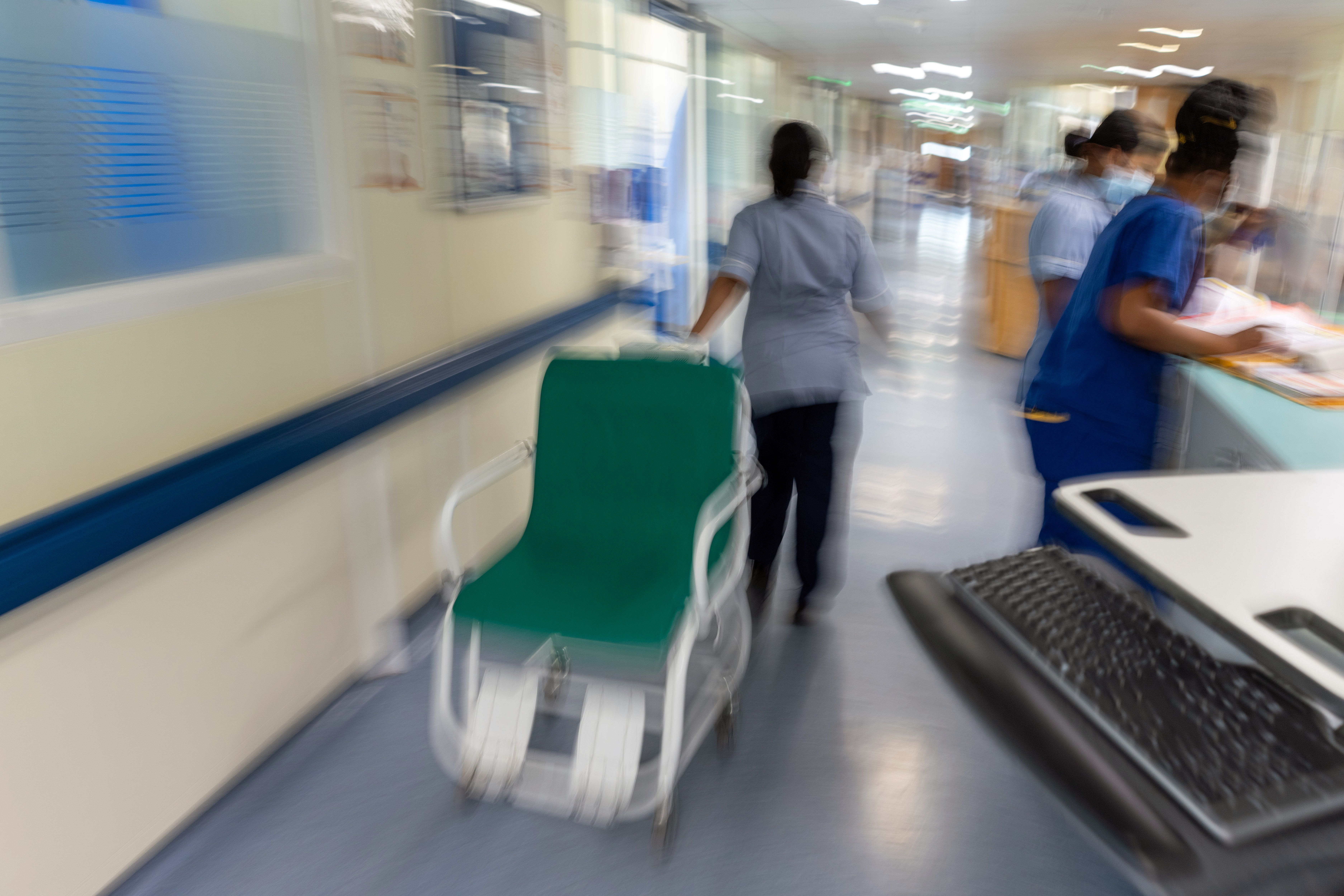£800,000 rapid research projects ‘to help tackle NHS winter crisis using AI’
These studies have been launched by Health Data Research UK.

Your support helps us to tell the story
From reproductive rights to climate change to Big Tech, The Independent is on the ground when the story is developing. Whether it's investigating the financials of Elon Musk's pro-Trump PAC or producing our latest documentary, 'The A Word', which shines a light on the American women fighting for reproductive rights, we know how important it is to parse out the facts from the messaging.
At such a critical moment in US history, we need reporters on the ground. Your donation allows us to keep sending journalists to speak to both sides of the story.
The Independent is trusted by Americans across the entire political spectrum. And unlike many other quality news outlets, we choose not to lock Americans out of our reporting and analysis with paywalls. We believe quality journalism should be available to everyone, paid for by those who can afford it.
Your support makes all the difference.Sixteen rapid research projects have been awarded £800,000 to help tackle NHS winter pressures by using existing health data records and artificial intelligence.
These projects – which include helping reduce ambulance wait times and understanding the effects of cold homes on health – have been launched by Health Data Research UK (HDR UK) with funding from the National Institute for Health and Care Research (NIHR).
Other studies also include using hospital data to speed up patient flow through emergency departments, as well as using an analysis approach called machine learning to predict peaks of infection with respiratory syncytial virus (RSV) – a common bug that can cause serious illness in young children.
Professor Cathie Sudlow, chief scientist at HDR UK – the UK’s institute for health data science, which is delivering the projects, said: “As a doctor who has previously treated patients in the emergency department, I am all too aware of the enormous challenges faced by the healthcare system this winter.
“It’s critical that we use data rapidly, securely, and responsibly to support the NHS, its workers, and the patients who rely on it for their care.
By using existing data, research teams, and infrastructure these projects are able to respond rapidly to evolving pressures on the NHS
“By using existing data, research teams, and infrastructure these projects are able to respond rapidly to evolving pressures on the NHS.”
The rapid research projects were selected in December 2022 and aim to produce results by the end of March.
Health and Social Care Secretary Steve Barclay said: “We are harnessing the spirit of innovation that delivered the Covid vaccine rollout to promote cutting-edge research aimed at tackling the winter pressures on our NHS.
“Backed by £800,000 of government funding, these pioneering projects will rapidly collate data and use the latest analysis techniques to find ways of reducing hospital stays, preventing illness and freeing up staff time.
“We’re already taking immediate action to ease pressures on health services, including investing an additional £200 million to get medically fit patients out of hospital quicker.
“We are also spending £50 million to ease congestion in hospital emergency departments by expanding discharge lounges, where patients can relax while waiting for relatives or friends to take them home, and ambulance hubs.
“Those sums come on top of the £500 million Discharge Fund announced in the Chancellor’s autumn statement for cutting bed occupancy, reducing ambulance handover times and increasing capacity in social care.”